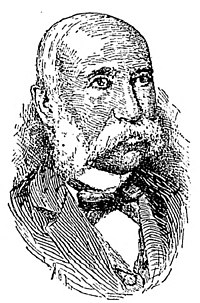David Levi (Italy)
Educated at the Jewish schools of his native town and Vercelli, he for a short time followed a mercantile career.
In 1835 he went to the University of Parma, and later to that of Pisa, but he had to leave the latter on account of a duel in which he wounded a fellow student whom he had challenged for having made an insulting remark about the Jews.
The university ideals of a united, free Italy had found a strong follower in Levi, who had become a member of the irredentist society La Giovane Italia.
Levi wrote many poems, especially during his stay at Venice, and a large number of political and war songs, among these the well-known ode to Pope Pius IX, who in 1846, upon his election to the papal chair, was hailed as liberator, but who in 1849 changed his political views and became strongly reactionary.
Levi was the author of: Patria ed Affetti (Venice, 1849), a collection of poems; Gli Martiri del 1799 (Turin, 1850), a drama; Martirio e Redenzione (ib.
Its theme Levi describes in his introduction as follows: "I intend to hold a mirror before my contemporaries, in which they may see their errors, faults, and mistakes, and thereby learn to despise them; at the same time placing before them a high ideal, which they should strive to live up to."
Jeremiah foresees the fall of Jerusalem, if the people do not give up their worship of Baal, repent of their sins, and return to the only true God.
Emanuel joins the ranks of the defender of Jerusalem, is mortally wounded, and dies in the arms of his beloved.
